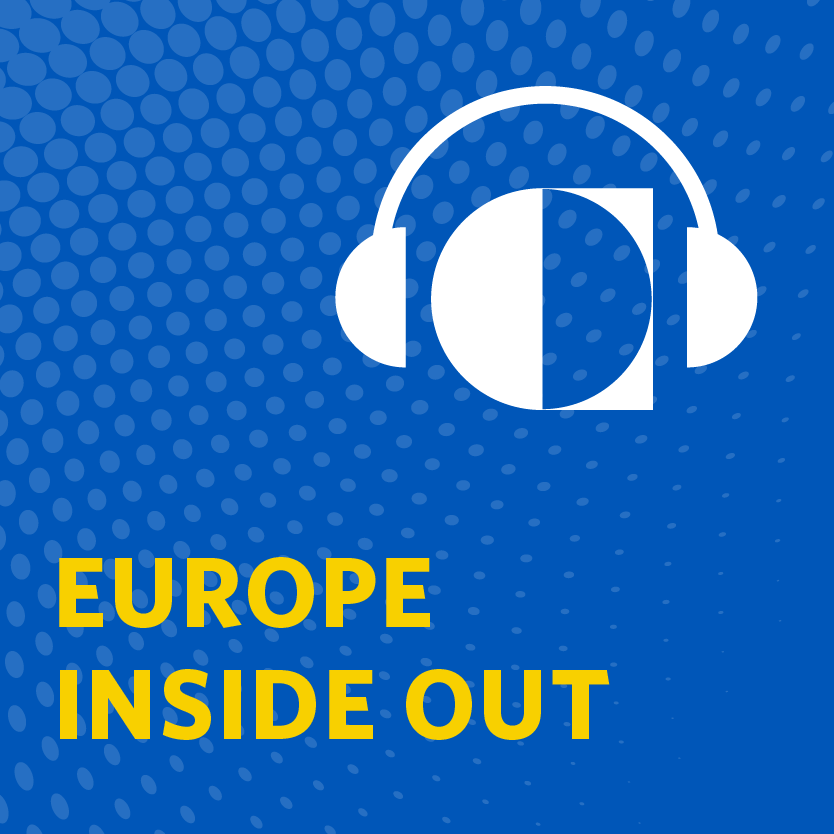podcasts


Europe Inside Out brings together experts to explain Europe’s foreign policy challenges and opportunities. Every month, go beyond the headlines with Carnegie Europe and explore where the continent stands, how it got here, and where it is heading.

Is Europe Ready for Trump 2.0?
Rym Momtaz, Sophia Besch, and Christopher Shell discuss how Donald Trump’s victory might reshape transatlantic relations.

Thomas de Waal and Natalie Sabanadze discuss the stakes in Georgia’s forthcoming election and explore how the results could affect the country’s course toward EU membership.
- Thomas de Waal,
- Natalie Sabanadze
Peter Kellner and Kim Darroch explore the challenges and opportunities in resetting EU-UK relations under a new Labour government in Britain.
In a special episode of Europe Inside Out, Rosa Balfour, Judy Dempsey, and Jan Techau shed light on the creation of Carnegie Europe’s “Strategic Europe” blog and assess Europe's changing role in the world.
Is the Planet on the Ballot?
Olivia Lazard and Rod Schoonover discuss how this year’s elections in the EU and the United States will shape global climate policies, stressing the urgent need for transformative action amid increasing planetary insecurity.
Richard Youngs and Thomas Carothers discuss the future of the global democratic agenda and take stock of what Brussels and Washington can do to support it.
Thomas de Waal and Fiona Hill discuss Russia’s changing status in its neighboring countries and the factors shaping their relationship with Moscow—and the West.
Rosa Balfour and Stefan Lehne discuss why the radical right is on the rise in Europe, how this trend might impact EU policies, and what can be done to contain it.
Marc Pierini and Sinan Ülgen analyze the lead-up to the Turkish municipal elections in March 2024, the sustainability of Ankara’s balancing act between Russia and the West, and the future of Turkey’s relations with Brussels and Washington.
Dimitar Bechev and Oana Popescu-Zamfir discuss the social and political dynamics in the Western Balkans, why EU enlargement to the region has stalled, and how remaining obstacles can be overcome.
- Dimitar Bechev,
- Oana Popescu-Zamfir
Europe in the New Middle East
Pierre Vimont and Amr Hamzawy take stock of Europe’s response to the Israel-Hamas war and provide insights into how Brussels should navigate evolving geopolitical challenges in the Middle East.
Russia’s war against Ukraine reveals much about the use of cyber capabilities in warfare and the evolving roles of states, international organizations, and the private sector in securing the digital realm.
Lizza Bomassi and Elina Noor explore the nature and future of the partnership between Europe and Southeast Asia.
What Peace for Ukraine?
Judy Dempsey and Marie Yovanovitch assess Western support for Ukraine’s war effort, the country’s democratic transition, and the prospects for peace.
Rosa Balfour and Stefan Lehne discuss how the EU’s institutional and political dynamics are shaping its role in an increasingly chaotic and contested global order.
Thomas de Waal and Dimitar Bechev unpack the geopolitical implications of Russia’s invasion of Ukraine for the Black Sea states, from Turkey’s mediating role and the UN-brokered grain deal that is helping to feed the world, to growing EU and NATO interest in the region.
Europe’s approach to Iran has focused mainly on the nuclear dossier, largely neglecting human rights and socioeconomic issues. To ensure a brighter future for all Iranians, the EU must place women’s rights at the center of a new comprehensive strategy toward Tehran.
- Cornelius Adebahr,
- Barbara Mittelhammer
Why Germany Broke Defense Taboos
Judy Dempsey and Sophia Besch discuss the major shifts in Germany's security and defense policy, which have been spurred by Russia’s invasion of Ukraine.
Gwendolyn Sasse and Yuliya Bidenko examine Ukraine’s recent history and discuss the role of civilian resistance in opposing Russian forces and rebuilding the country.
How 2023 Could Transform Turkey
Sinan Ülgen and Marc Pierini assess the state of Turkish politics and economics and discuss the implications of political change ahead of the country’s elections.
Rosa Balfour and Dan Baer discuss how the European Union and the United States can improve transatlantic coordination on Russia, trade, and China.
Richard Youngs and Rachel Kleinfeld analyze the state of democracy in the United States and Europe and look toward the future of international democracy support.
Olivia Lazard and Noah Gordon discuss transatlantic efforts to navigate the geopolitics of climate, the energy transition’s blind spots, and what to look forward to at COP27.
Rosa Balfour and Thomas de Waal discuss Russia’s war in Ukraine, what the West got wrong, and how it is transforming EU policies.